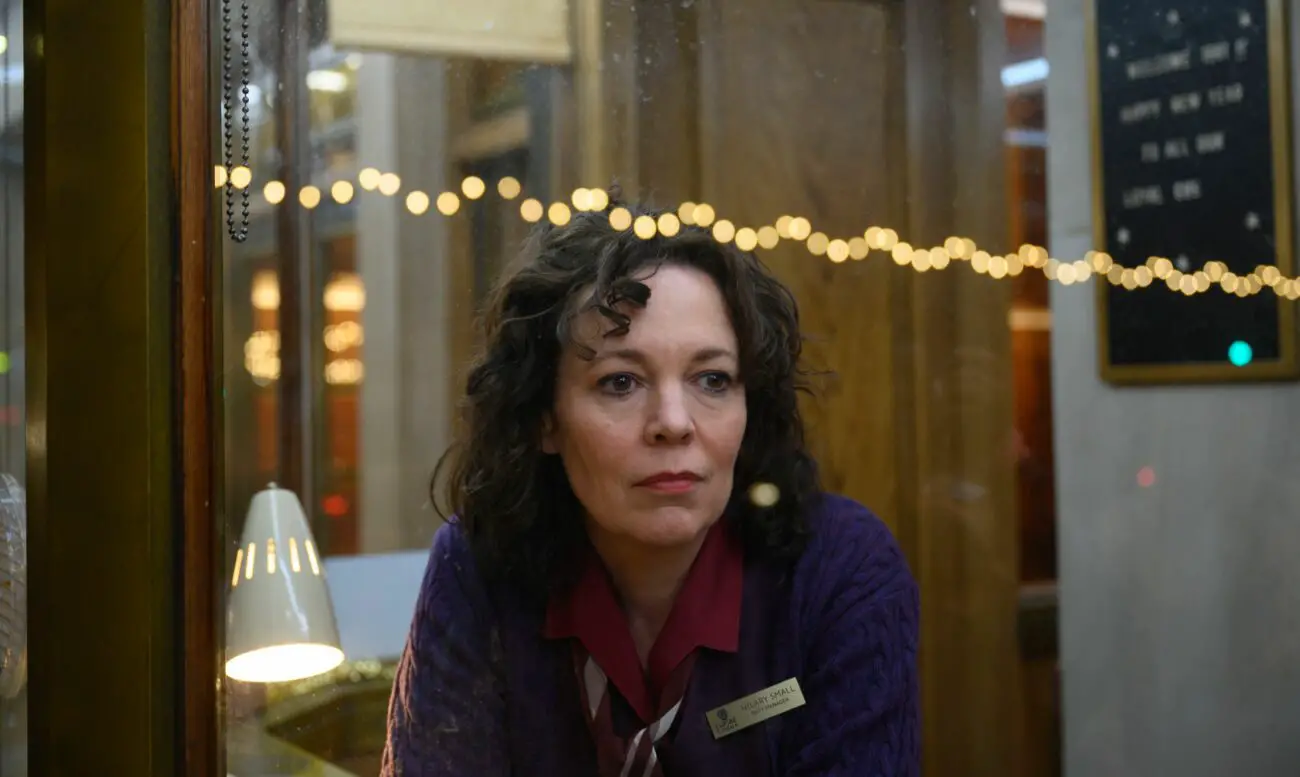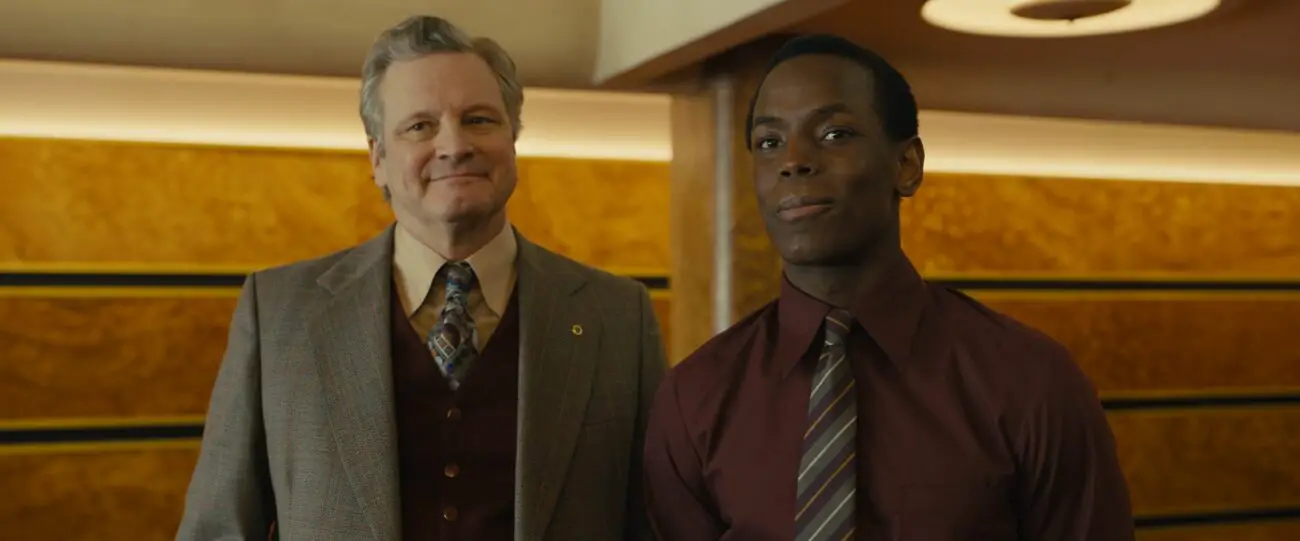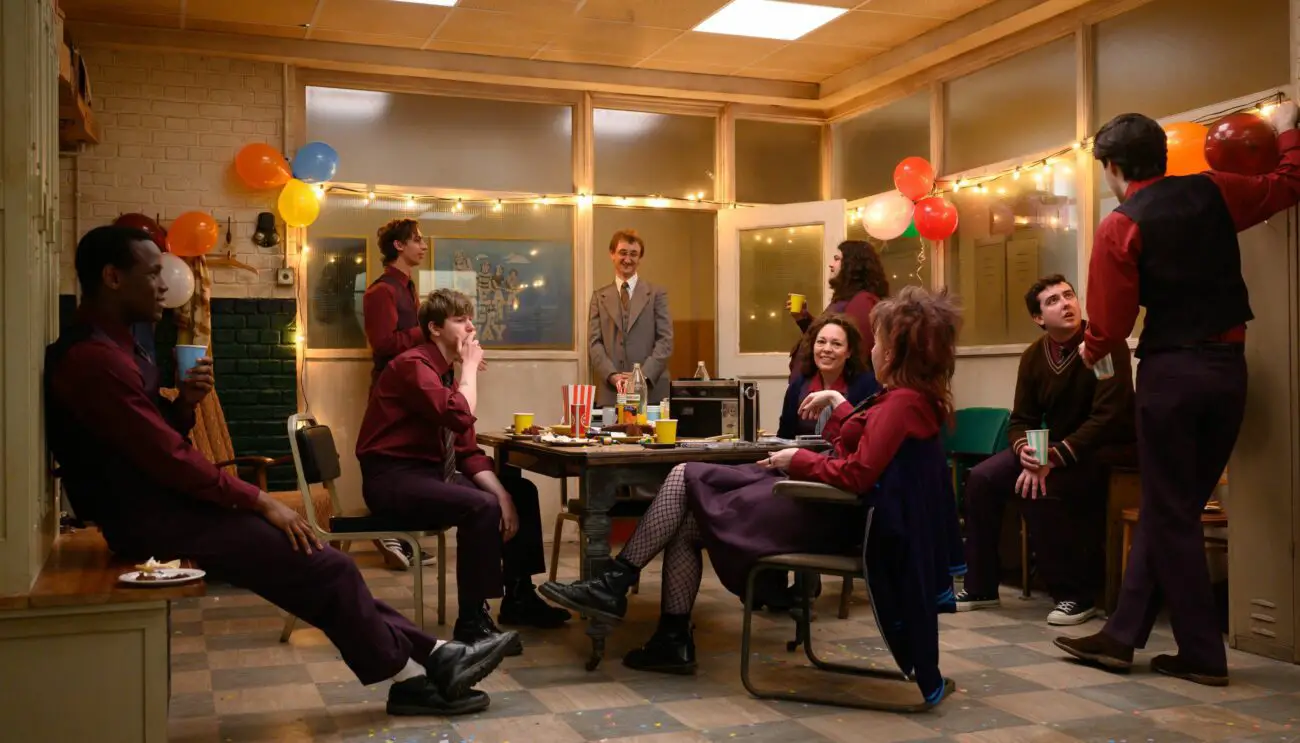
Spotlight Presentation of the 58th Chicago International Film Festival
In the grand lobby of the fictional movie theater in Empire of Light, a quote from William Shakespeare’s Love’s Labours Lost is prominently displayed. It states, “Find light where darkness lies.” Applied literally to this setting, the many images beamed from the house’s film projectors do just this for eager audiences in their sunless auditoriums. Like an inspirational poster hanging in your boss or teacher’s office, that quote reads just fine. Dig deeper, though, and you’ll find more.
That line is but part of the Biron character’s key argument in Love’s Labours Lost. The full monologue reads:
Why, all delights are vain; but that the most vain,
Which with pain purchased doth inherit pain:
As, painfully to pore upon a book
To seek the light of truth; while truth the while
Doth falsely blind the eyesight of his look:
Light seeking light doth light of light beguile:
So, ere you find where light in darkness lies,
Your light grows dark by losing of your eyes.
Study me how to please the eye indeed
By fixing it upon a fairer eye
Biron is arguing with King Ferdinand about a royal edict for his subjects to abstain from good food and loving relationships. To Biron, love is where true wisdom lies, and his argument causes his peers to abandon their oath to the king in favor of life’s joys.
In both subtle and heavy ways, that bold Shakespearean quote hanging above the commoner characters of Empire of Light shuffling about their workplace rings poetically true time and again. In Sam Mendes’ intimate film, the central lives are small. The people you meet are not iconic heroes, luminaries, or great pillars of their community. Their joys are small and fleeting as well. What does loom large is the myriad of obstacles and personal difficulties that keep each of them from experiencing affirming and lasting joys.

Academy Award winner Olivia Colman (The Favourite) plays the appropriately named Hilary Small. She’s the middle-aged and unmarried duty manager of the Empire Cinema located in the seaside Kent town of Margate. Like her job title, “dutiful” is a good word for her. She’s the quiet, mousy veteran that sticks to the routines which keep the place in order for the owner, Mr. Ellis (fellow Oscar winner Colin Firth).
Behind the scenes, Hilary is the uncomfortable sexual side piece for Mr. Ellis. Even with that going on, she lives a thrill-less solitary life and takes lithium for her mental health. Hilary is pensive and never watches the movies at the Empire screened by the long-time projectionist Norman (the wonderful Toby Jones), unlike the other various underlings of twenty-somethings who pass through the cinema’s usher and concession jobs.

One new worker, a Black college student named Stephen Murray (2020 BAFTA Rising Star Award winner Micheal Ward of Blue Story), likely half Hilary’s age, arrives to bring human brightness and catch her eye. In showing Stephen around the neglected upstairs of the Empire housing two more movie screens, a closed bar, and a dance hall, the two nurse a pigeon back to life and start their own improbable tryst after ringing in the new year of 1981.
Holy potatoes, Empire of Light! Between Hilary being submissive with Mr. Ellis and swinging for the fences with Stephen, who knew the hot and heavy relationship dynamics of a movie theater? Come to think of it, we’ve seen enough TV sitcoms and workplace dramas getting saucy. Every workplace stacks skeletons in everyone’s closets. Unless you work in a monastery or convent, if you don’t have a work crush, you’re doing it wrong.

Secret sexual tumbling aside, the people you work with all have lives away from work. How much do you really know about those casual acquaintances? More often than not, especially here at the middle class level shown in Empire of Light, teams of employees are a collection of fractured people who are not so broken when they are supported together and working for the same goals. Even Toby Jones’ reclusive minor character, relishing in “precious cargo” and complex machinery, is a man with his own burnt bridges and past misgivings. Not knowing their home lives, for all we know, those hours spent together might be the most interpersonal contact they experience day after day.
Empire of Light, Mendes’ first solo-penned screenplay, leans on such disorderly human connections. In a strong performance of poise against societal barriers from Micheal Ward, Stephen is shown harassed and targeted by the racist Skinhead crowds of this era. Hilary’s nebbish personality hides sad demons and a powerful streak of mental illness verging on regression and a repeated breakdown, creating another excellent layered performance from the incomparable Olivia Colman. She is, far and away, the top reason to see Empire of Light. The film teeters on their uncommon relationship pushed and pulled by her lead character.

Sam Mendes seeks to shine up the ugliness of all involved with the enchantment of the movies, thanks to the inspiring workplace dressed up by production designer Mark Tildesley (The Banshees of Inisherin). Having the world’s best working cinematography at your disposal sure helps. Roger Deakins is in his mode from The Goldfinch, scaling down his immense work from the last few years (1917, Blade Runner 2049) to engage natural light and fill scenic depth in very domestic settings. While everything is weathered and plush, none of it, including a surprising rote score from Oscar winners Trent Reznor and Atticus, moves the viewer stylistically.
To press that feeble aesthetic further, the dramatic soap of Empire of Light is that everyone is cleansed when lovely cinematic journeys push viewers and servants alike to go out and get the life they want. Movie theaters are indeed an oasis of culture, a safe haven for friendship, and a shared glue of communal experiences. Can movies unlock repressed emotions for Hilary or improve her attitudinal state? Maybe and maybe not, but it’s quaintly nice to think so. That escapist magic, while plenty special as we all know, is as fleeting as the permeating effect attempted in Empire of Light. The private and civil issues present in this film cannot be fixed and are not fixed by silver screen sorcery. Sorry, but it’s going to take more than Hal Ashby’s Being There.



